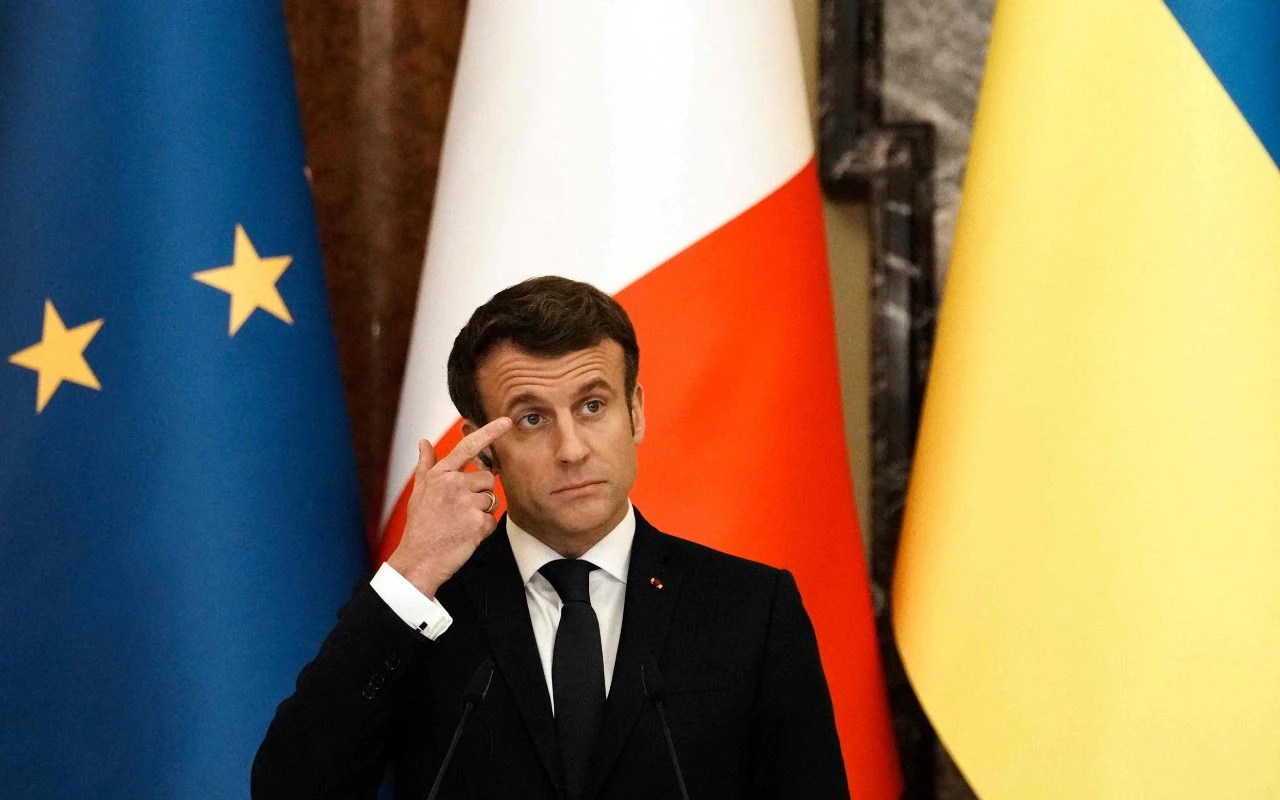
PARIS, Feb 9, 2022 (BSS/AFP) - French President Emmanuel Macron has
kept diplomacy on track in the crisis between Russia and Ukraine, even
if his policy of a "demanding dialogue" with Russia has not met with
universal support among Western allies.
With his two-day sequence of visits to Moscow, Kyiv and Berlin,
Macron managed to put Europe back at the centre of resolving the
crisis, though the threat of war remains real.
German Chancellor Olaf Scholz, who has insisted he is in lockstep
with Macron in the crisis, will continue the diplomacy push by
travelling to Kyiv and then Moscow -- notably the reverse order to the
French president -- next week.
"We have simple objectives. Firstly to avoid war. The peace and
stability of the European continent are our treasure and we consider
it our duty to do everything to preserve it," Macron said alongside
Scholz and Polish President Andrzej Duda in Berlin, on the final leg
of his trip late Tuesday.
- Not a 'bluff' -
But the likelihood of a new attack by Russia on Ukraine is far from
being eliminated, with the French president struggling to balance the
West's defence of Ukrainian sovereignty with the security demands put
forward by Moscow.
Russia has amassed some 130,000 troops close to the border with
Ukraine as it seeks a guarantee that its neighbour will never join
NATO along with US pledges over its military presence in eastern
Europe, raising fears of a full-scale invasion.
"Russia's buildup does not look like a bluff," said Nigel
Gould-Davies, a senior fellow at the International Institute for
Strategic Studies (IISS).
"Unless they (Macron and Scholz), or parallel US efforts, shift the
parameters, military conflict increasingly looks the most likely
outcome of this crisis," he said.
- 'Against your will' -
Adding to the complexities, Macron will soon have to throw himself
into campaigning for France's presidential elections starting April
10.
And to add to the foreign policy headaches, he also must decide
whether to extract French troops from the anti-jihadist fight in Mali
after a breakdown in relations with the ruling junta.
Macron held five hours of talks with Putin at the Kremlin on
Monday, emerging without any breakthrough -- the gigantic table they
sat at symbolising the distance between Russia and the West and
spawning a myriad of internet memes.
Putin's comments after their talks were marked by chilling
warnings, with the Russian leader saying that if Ukraine joined NATO
and sought to take back the annexed peninsula of Crimea, Europe would
"automatically" find itself in a military conflict with Russia.
Emphasising that Russia is a leading nuclear power and ahead of the
West in some areas of military technology, he added: "There will be no
winners, and you will find yourself drawn into this conflict against
your will."
- European 'resilience'? -
A pan-European poll published Wednesday by the European Council on
Foreign Relations (ECFR) showed that a majority of people in six of
seven major EU countries -- the exception being non-NATO member
Finland -- believed a Russian invasion of Ukraine was likely.
"The next few weeks will test whether Europeans can make the
transition from a world shaped by soft power to one shaped by
resilience," said the report's authors Ivan Krastev and Mark Leonard.
Macron and fellow EU leaders may also have to deal with
trans-Atlantic splits, with not just Germany but also France failing
to back a vow by US President Joe Biden to end the controversial Nord
Stream 2 gas pipeline from Russia to Europe if Russia invades.
"Europeans have different interests from those of the Americans and
we must be able to tell our American this allies in the most clear
way," French Economy Minister Bruno Le Maire said Tuesday.
He said if a conflict broke out, the US would not "endure the same
consequences as the Europeans" notably in terms of European energy
dependence on Russia.
- 'Unsolvable equation' -
Macron claimed he had won a commitment from Putin for no further
escalation, but while he has made clear Russia's demands over security
should be heard -- "showing respect for Russia and showing
understanding for its traumas" -- his options are limited.
After remarks on his flight to Moscow sparked controversy, Macron
denied ever using the term "Finlandisation" as a possible option for
Ukraine -- referring to the neutrality of the Nordic country in the
Cold War -- which had sparked anger among some Western commentators.
"Old terms for new situations rarely work. @EmmanuelMacron,"
seethed the former Finnish prime minister Alexander Stubb on Twitter.
The headline in the Le Monde daily Wednesday concluded: "The place
of Ukraine in NATO -- Emmanuel Macron's unsolvable equation."